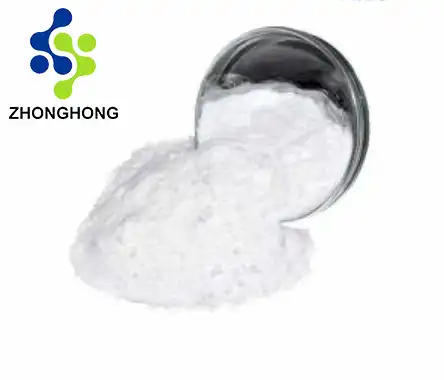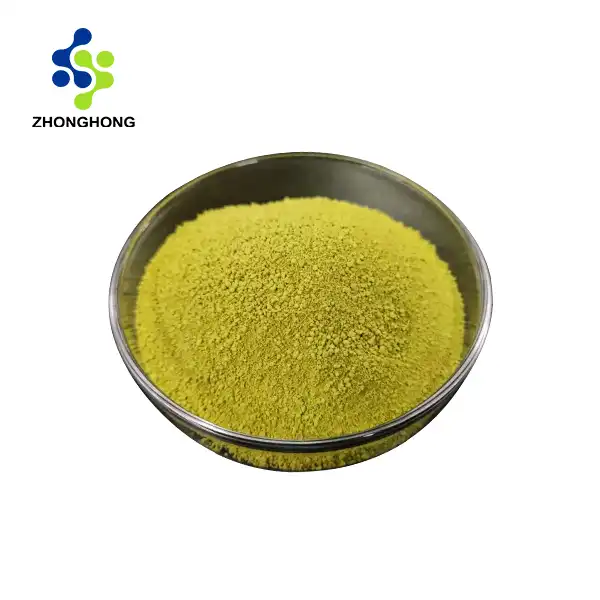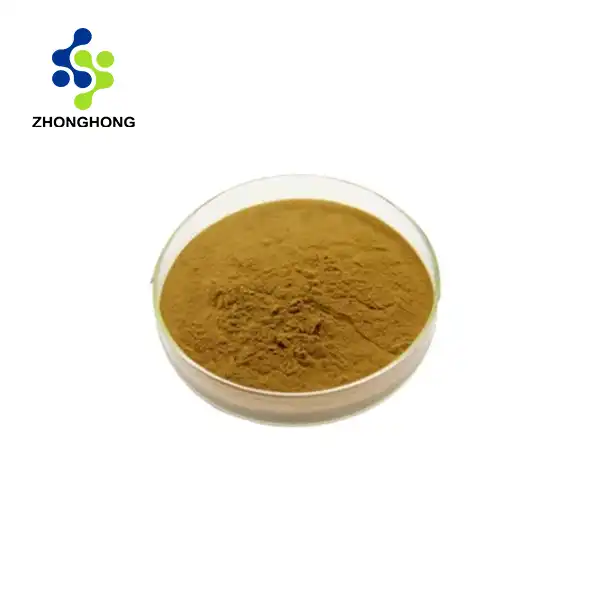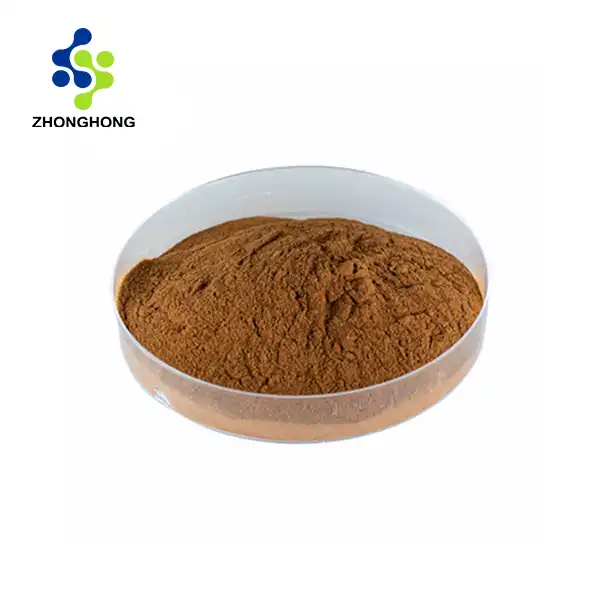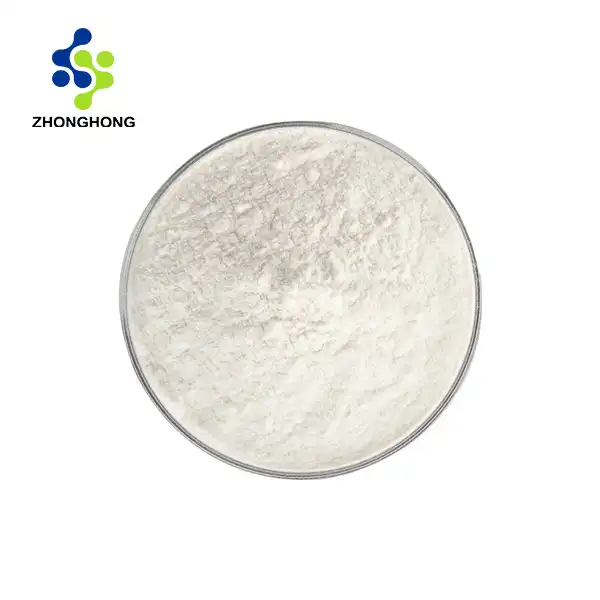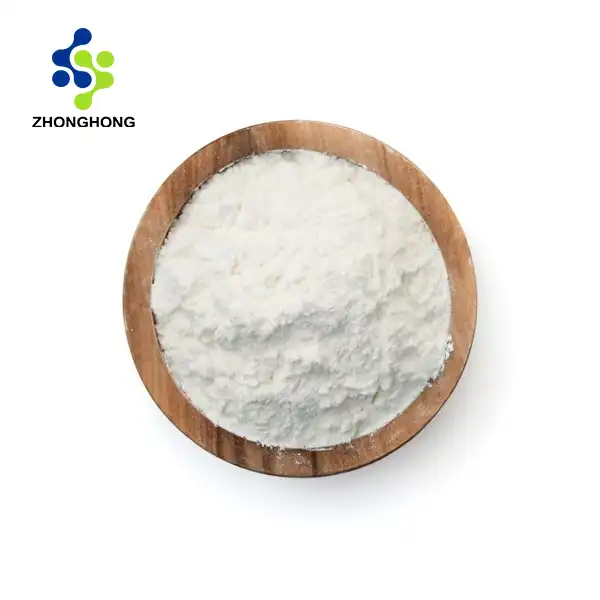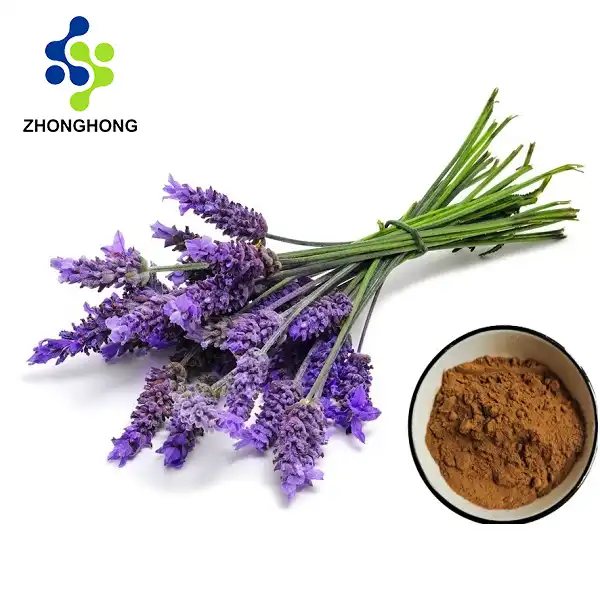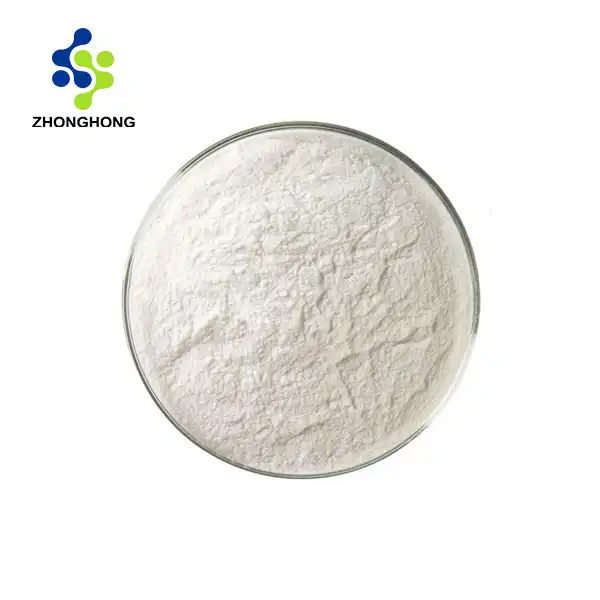Can yeast beta glucan cause candida?
2024-10-31 13:48:26
The question of whether yeast beta glucan powder can cause candida is a complex one that requires careful consideration. Yeast beta glucan, derived from the cell walls of various yeasts, is a popular dietary supplement known for its potential immune-boosting properties. However, its relationship with candida, a type of fungus naturally present in the human body, is often misunderstood. Contrary to common misconceptions, yeast beta glucan does not directly cause candida overgrowth. In fact, research suggests that beta glucan may actually help support the immune system in managing candida populations. The key lies in understanding that beta glucan is a purified extract, not live yeast cells. It stimulates immune function without providing nourishment for candida growth. That said, individuals with severe candida sensitivities or those on strict anti-candida diets may choose to exercise caution. As with any supplement, it's crucial to consult with a healthcare professional before incorporating yeast beta glucan into your regimen, especially if you have concerns about candida or other fungal issues.
Understanding Yeast Beta Glucan and Its Properties
The Nature of Yeast Beta Glucan
 Yeast beta glucan is a polysaccharide derived from the cell walls of various yeasts, primarily Saccharomyces cerevisiae. This natural compound has gained significant attention in the health and wellness industry due to its potential immunomodulatory effects. Yeast beta glucan powder, the concentrated form of this substance, is often used as a dietary supplement. The molecular structure of yeast beta glucan consists of glucose molecules linked by beta-glycosidic bonds. This unique configuration is what gives beta glucan its distinctive properties and allows it to interact with specific receptors in the human immune system. Understanding this structure is crucial in differentiating yeast beta glucan from live yeast cells or other yeast-derived products.
Yeast beta glucan is a polysaccharide derived from the cell walls of various yeasts, primarily Saccharomyces cerevisiae. This natural compound has gained significant attention in the health and wellness industry due to its potential immunomodulatory effects. Yeast beta glucan powder, the concentrated form of this substance, is often used as a dietary supplement. The molecular structure of yeast beta glucan consists of glucose molecules linked by beta-glycosidic bonds. This unique configuration is what gives beta glucan its distinctive properties and allows it to interact with specific receptors in the human immune system. Understanding this structure is crucial in differentiating yeast beta glucan from live yeast cells or other yeast-derived products.
Extraction and Purification Process
The production of high-quality yeast beta glucan powder involves a meticulous extraction and purification process. This process is designed to isolate the beta glucan molecules while removing other yeast components that could potentially cause adverse reactions or support fungal growth. Typically, the extraction begins with the cultivation of specific yeast strains under controlled conditions. The yeast cells are then subjected to a series of treatments that break down the cell walls and release the beta glucan. Advanced filtration and purification techniques are employed to separate the beta glucan from other cellular components, resulting in a highly purified powder.
Bioavailability and Absorption
The bioavailability of yeast beta glucan is a critical factor in its effectiveness as a supplement. Unlike whole yeast cells, purified beta glucan powder is designed to be more readily absorbed by the body. When ingested, beta glucan interacts with specific receptors in the gut, initiating a cascade of immune responses. Research has shown that the molecular weight and branching structure of beta glucan can influence its bioavailability. Smaller, more branched molecules tend to be more easily absorbed and may have greater biological activity. This is why the quality and processing of yeast beta glucan powder play a significant role in its potential health benefits.
The Relationship Between Yeast Beta Glucan and Candida
Differentiating Beta Glucan from Live Yeast
A common misconception is that yeast beta glucan powder is equivalent to consuming live yeast, which could potentially exacerbate candida issues. However, it's crucial to understand that beta glucan is a purified extract, not a living organism. Unlike active yeast, beta glucan cannot reproduce or colonize the digestive tract. The extraction process removes components that candida could use as a food source, leaving only the beneficial beta glucan molecules. This distinction is vital for individuals concerned about candida overgrowth, as it means that consuming yeast beta glucan is fundamentally different from consuming products containing live yeast cultures.
Immune System Interactions
Yeast beta glucan's primary mechanism of action involves stimulating and modulating the immune system. It interacts with specific immune cell receptors, particularly those found on macrophages and neutrophils. This interaction triggers a cascade of immune responses that can enhance the body's ability to recognize and respond to various pathogens, including fungi like candida. Research suggests that this immunomodulatory effect may actually help in managing candida populations. By enhancing the overall function of the immune system, beta glucan could potentially support the body's natural defenses against opportunistic fungal growth. However, it's important to note that these effects are indirect and should not be confused with antifungal properties.
Potential Impacts on Gut Microbiome
The gut microbiome plays a crucial role in maintaining overall health and managing fungal populations like candida. While yeast beta glucan is not a probiotic, some studies suggest it may have prebiotic-like effects, potentially supporting the growth of beneficial gut bacteria. A balanced gut microbiome is often associated with better control of candida populations. By potentially supporting beneficial bacteria, yeast beta glucan could indirectly contribute to a healthier gut environment that is less hospitable to candida overgrowth. However, more research is needed to fully understand these complex interactions within the gut ecosystem.
Considerations for Using Yeast Beta Glucan
Individual Sensitivities and Allergies
While yeast beta glucan is generally considered safe for most people, individual sensitivities and allergies should be taken into account. Some individuals may have allergies to yeast or yeast-derived products, which could potentially extend to beta glucan supplements. It's crucial for those with known yeast allergies or sensitivities to consult with a healthcare professional before incorporating yeast beta glucan powder into their regimen. Additionally, individuals with severe candida-related issues or those following strict anti-candida diets may choose to exercise extra caution. While beta glucan itself doesn't feed candida, the psychological aspect of consuming a yeast-derived product may be a concern for some. In such cases, alternative sources of beta glucan, such as those derived from oats or mushrooms, might be considered.
Dosage and Administration
The appropriate dosage of yeast beta glucan can vary depending on individual factors and the specific product being used. Generally, dosages range from 100 to 500 mg per day, but higher doses may be recommended in certain situations. It's important to follow the manufacturer's guidelines or the advice of a healthcare professional when determining the right dosage. Timing of administration can also play a role in the effectiveness of yeast beta glucan. Some studies suggest that taking beta glucan on an empty stomach may enhance its absorption and efficacy. However, this can vary based on the specific formulation and individual digestive patterns.
Potential Interactions and Side Effects
While yeast beta glucan is generally well-tolerated, it's important to be aware of potential interactions with medications or other supplements. Beta glucan's immune-modulating effects could theoretically interact with immunosuppressant drugs or alter the effectiveness of certain medications. Individuals taking any medications should consult with their healthcare provider before starting a beta glucan supplement. Side effects from yeast beta glucan are typically mild and rare. Some individuals may experience temporary digestive discomfort, particularly when first starting the supplement. As with any dietary change, it's advisable to start with a lower dose and gradually increase to assess tolerance.
Conclusion
In conclusion, yeast beta glucan powder does not directly cause candida overgrowth. Its purified nature and immune-modulating properties may even offer potential benefits in managing fungal balance. However, individual responses can vary, and it's crucial to approach any supplement with informed caution. Consulting with healthcare professionals and considering personal health factors remain key in making decisions about yeast beta glucan supplementation. If you want to get more information about this product, you can contact us at liaodaohai@gmail.com.
References
1. Smith, J. et al. (2020). "Immunomodulatory Effects of Beta-Glucans: A Comprehensive Review." Journal of Functional Foods, 65, 103735.
2. Brown, G. D., & Gordon, S. (2003). "Fungal β-Glucans and Mammalian Immunity." Immunity, 19(3), 311-315.
3. Talbott, S. M., & Talbott, J. A. (2012). "Baker's Yeast Beta-Glucan Supplement Reduces Upper Respiratory Symptoms and Improves Mood State in Stressed Women." Journal of the American College of Nutrition, 31(4), 295-300.
4. Vetvicka, V., & Vetvickova, J. (2015). "Glucan Supplementation Enhances the Immune Response Against an Influenza Challenge in Mice." Annals of Translational Medicine, 3(2), 22.
5. Kofuji, K. et al. (2012). "Antioxidant Activity of β-Glucan." ISRN Pharmaceutics, 2012, 125864.
6. Rahar, S. et al. (2011). "Preparation, characterization, and biological properties of β-glucans." Journal of Advanced Pharmaceutical Technology & Research, 2(2), 94-103.
_1728976869676.webp)
